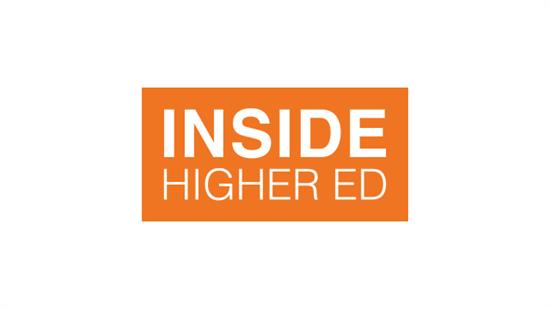By Daniel Elkins — Wednesday, July 25, 2018
The Enlisted Association of the National Guard enthusiastically supports the PROSPER Act, a bill to reform higher education, provide accountability and protect student veterans. Unfortunately the bill is being described by some veterans’ groups as bad legislation. They have a few valid points; here’s what we think.
As we debate reforming higher education from a perspective of serving veterans and service members, there is almost always an exclusive focus on one sector of postsecondary education -- the for-profit sector. Meanwhile, the majority of veterans and service members attend public and nonprofit institutions.
According to the U.S. Department of Veterans Affairs’ GI Bill Comparison Tool, 78 percent of all GI Bill recipients attend public and private nonprofit colleges and universities. Analysis of data from the Department of Defense’s TA Decide website shows that 62 percent of service members attend a public or nonprofit institution. Yet some veteran and military service organizations continue to narrow their efforts to only wanting to hold for-profit colleges accountable. This ignores U.S. Department of Education data that show there are almost 700,000 students who attend colleges with graduation rates of 20 percent or less. And the vast majority of these students attend nonprofit institutions.
The PROSPER Act goes beyond focusing on one sector of postsecondary education and seeks to hold all colleges and universities accountable. This bill shifts the discussion beyond whether an institution pays taxes and levels the playing field, calling for a more balanced approach to public, private, nonprofit and for-profit institutions.
Some veteran groups are disappointed that the PROSPER Act would remove the 90-10 provision, which requires that for-profit colleges receive at least 10 percent of their revenue from nonfederal sources. Independent research shows that the rule promotes discrimination, raises tuition and is a poor measure of quality. Putting that aside, there is already a rule known as 85-15 under the VA’s rules. And the 85-15 rule applies to all programs at all schools, while the 90-10 rule only applies to for-profit colleges.
The focus by some groups on the 90-10 rule ignores the stronger, enhanced accountability measures in PROSPER and represents a troubling trend of alignment with highly partisan organizations and funders. For example, the PROSPER Act requires accreditors to focus on student learning and outcomes, an area where veterans’ organizations could be influential and seek bipartisan support.
EANGUS seeks balanced policy recommendations to serve veterans, service members and their families. Moving forward we plan on expanding our operations to investigate the current state of higher education across all sectors, including public and private institutions. Doing this is not a partisan move to treat veterans as a means to an end; it is long overdue. We support the direction of PROSPER and believe veterans’ service organizations must put veterans first. We urge all our fellow VSOs to do the same.
We should be working together constructively to improve the PROSPER Act by making the case for amendments on the floor to include public service loan forgiveness for veterans. We cannot continue to accept partisan research and talking points as guiding principles of our work. Veteran service organizations must remain nonpartisan. Otherwise, our claim to being nonpartisan is no less credible than a left or right-leaning think tank claiming to be nonpartisan. We must be principled in our approach to all of the issues impacting veterans, regardless of how difficult they may seem. Unfortunately, most of the current rhetoric solely focusing on for-profit colleges originates from partisanship. At minimum, that should give veteran advocates pause.
Let us be clear: the PROSPER Act is not the answer to all of the issues impacting veterans and service members attending college, nor is it a perfect piece of legislation. But it certainly is not a bill that hurts college-going veterans and service members. In fact, if the bill were amended to maintain or enhance public service loan forgiveness for veterans, the bill would represent a good step forward and introduce new accountability measures for all schools, moving to hold institutions financially accountable for students who accrue debt without a degree.
We believe the PROSPER Act is a long overdue step toward reforming higher education law and protecting all student veterans at all institutions across higher education. We hope it is amended as stated above and support its passage.
To read online, click here.
To learn more about the PROSPER Act, click here.
# # #


